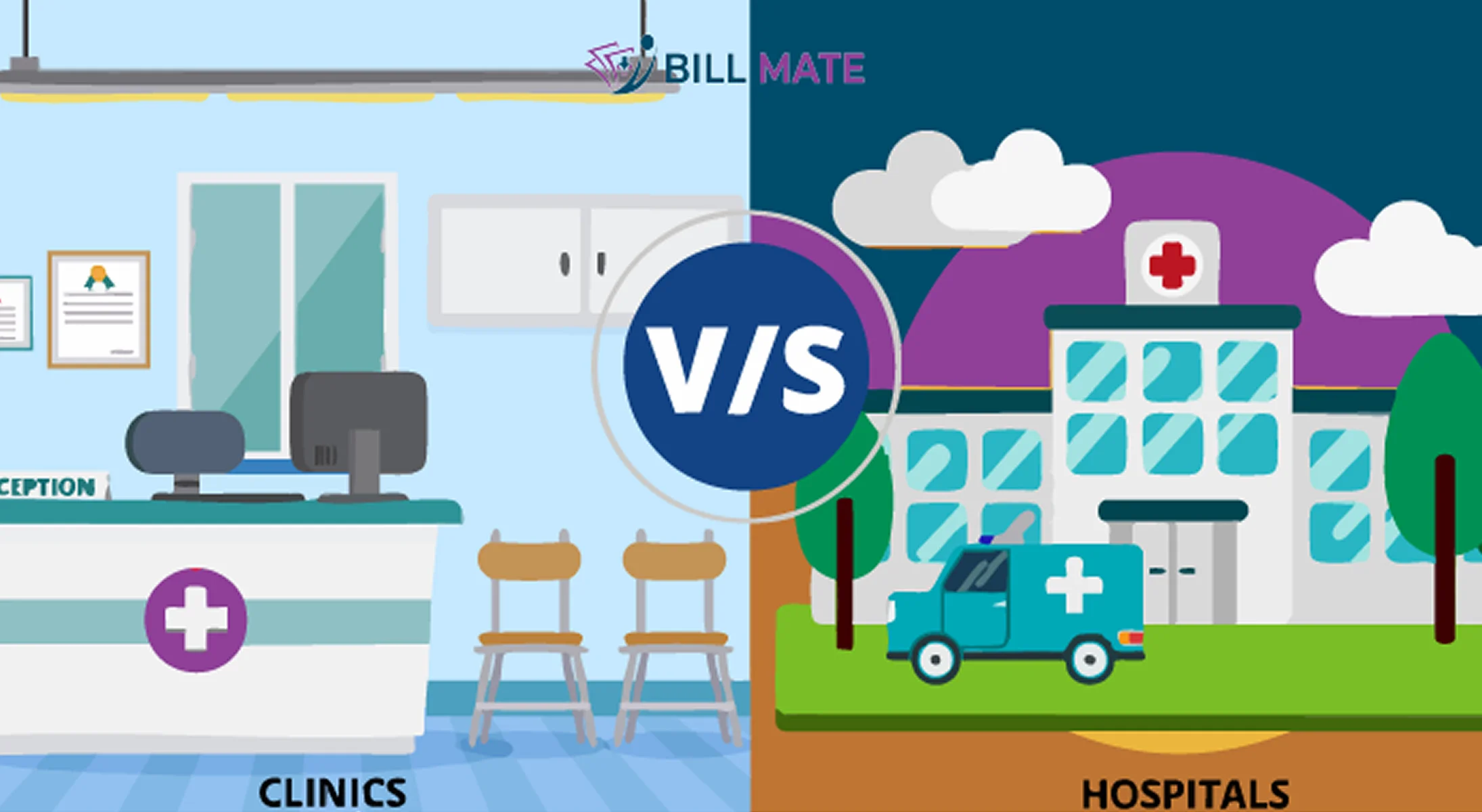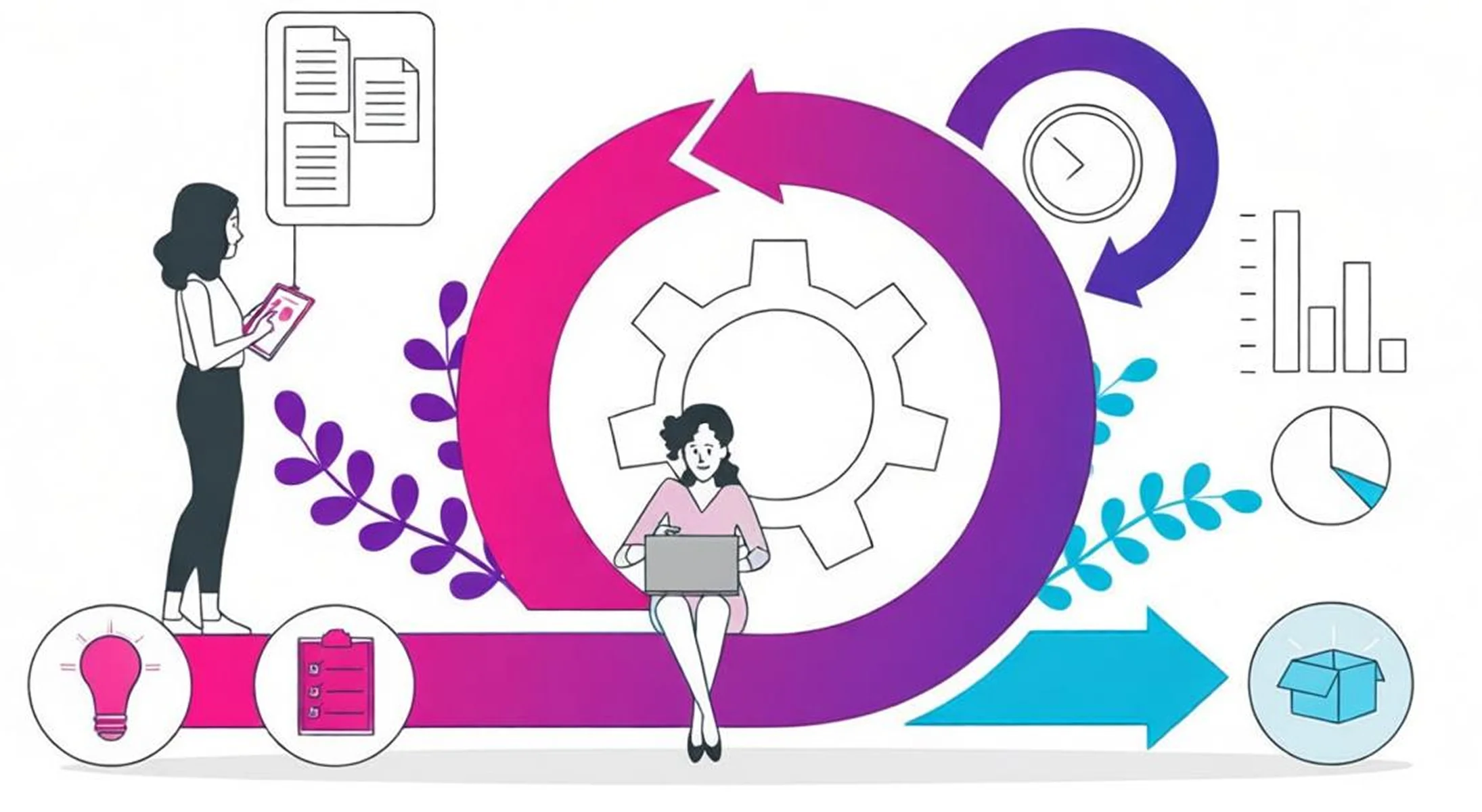
Outpatient Clinics vs. Hospitals: Key Differences in Revenue Cycle Management
By Billmate
Oct. 7, 2025, 5:53 a.m.
Revenue Cycle Management (RCM) is the financial backbone of any healthcare facility. Whether it’s a small outpatient clinic or a large hospital system, efficient RCM ensures timely reimbursements, reduced claim denials, and better patient satisfaction. However, the RCM process for outpatient clinics vs. hospitals differs significantly due to variations in patient volume, billing complexity, and compliance requirements.
In this blog, we’ll break down the key differences in revenue cycle management between outpatient clinics and hospitals, explore their unique challenges, and provide practical strategies to optimise both.
Understanding Revenue Cycle Management in Healthcare
Revenue Cycle Management (RCM) is the process that starts when a patient schedules an appointment and ends when the provider receives full payment for services rendered. It involves:
-
Patient Registration & Eligibility Verification
-
Medical Coding & Documentation
-
Claim Submission & Processing
-
Denial Management & Appeals
-
Patient Billing & Collections
While these steps remain the same in principle, the scale and complexity differ greatly between outpatient clinics and hospitals.
Outpatient Clinics

Simpler Billing Structures
Outpatient clinics usually focus on specific specialities, such as primary care, dental, or mental health services. Their billing processes are more straightforward because:
-
Limited procedures and treatments
-
Fewer coding variations
-
Shorter patient interactions
-
Challenges Faced by Outpatient Clinics in RCM
High Impact of Claim Denials – A single denial can significantly affect cash flow.
-
Patient Collections – Patients are often directly responsible for a larger portion of payments, making collections difficult.
-
Staff Limitations – Clinics may lack full-time billing teams, increasing the chance of errors.
Opportunities for Optimisation
-
Medical Billing Software 2025 tailored to small practices
-
Outsourcing to a medical billing company USA or regionally for cost efficiency
-
Best practices in accurate claim submission to avoid rejections
Hospitals

Multi-Departmental Billing
Hospitals handle thousands of patients across departments such as surgery, emergency, radiology, and inpatient care. This complexity creates:
-
Multiple billing codes for a single patient encounter
-
Greater reliance on healthcare revenue cycle management systems
-
Increased risk of medical coding errors
Challenges Faced by Hospitals in RCM
-
Insurance Complexity – Hospitals must manage multiple payer contracts, each with unique requirements.
-
Claim Denials in Medical Billing – Often due to incomplete documentation or coding mistakes.
-
Patient Volume & Compliance – HIPAA compliance and global regulations (like GDPR in some regions) add pressure.
Opportunities for Optimisation
-
Automation in billing processes to reduce manual errors
-
AI-powered denial management systems
-
Comprehensive hospital billing solutions for multi-department integration
Key Differences in Outpatient vs. Hospital RCM

-
Patient Volume & Visit Frequency
-
Outpatient Clinics: Lower patient volume, frequent repeat visits.
-
Hospitals: High patient volume, including emergency and inpatient cases.
-
Billing Complexity
-
Outpatient: Few services, straightforward claims.
-
Hospitals: Bundled billing, complex coding across specialities.
-
Denial Impact
-
Outpatient: A single denial significantly affects revenue.
-
Hospitals: Denials spread across multiple departments, harder to track.
-
Staff & Resources
-
Outpatient: Limited billing staff, often multitasking roles.
-
Hospitals: Dedicated billing and compliance departments.
-
Technology Use
-
Outpatient: Affordable billing software solutions.
-
Hospitals: Enterprise-level RCM and electronic health record (EHR) integrations.
Regional Perspectives

USA – Advanced Systems, High Costs
-
Strong adoption of medical billing services USA.
-
High focus on reducing claim denials and maximising reimbursements.
UK – NHS & Private Mix
-
Healthcare billing services UK vary depending on NHS or private providers.
-
Revenue cycles are shorter, but compliance with NHS standards is strict.
Pakistan – Emerging Billing Solutions
-
Hospital billing solutions Pin akistan are still evolving.
-
Outsourcing to global companies is common due to cost-effectiveness.
India – Growth in RCM Outsourcing
-
Revenue cycle management Iin ndia is rapidly growing as providers outsource globally.
-
AI-powered automation is being adopted in urban hospitals.
Best Practices for Effective RCM in Clinics & Hospitals

For Outpatient Clinics
-
Invest in cloud-based medical billing software in 2025.
-
Implement strong patient payment collection strategies.
-
Regular staff training to prevent coding errors.
For Hospitals
-
Adopt enterprise-grade RCM platforms.
-
Use AI and machine learning for denial management.
-
Centralise billing across departments for efficiency.
According to a CMS report
Healthcare organisations using automation reduce claim denials by up to 30%. Clinics and hospitals that embrace AI-driven billing will see faster reimbursements and stronger cash flow.
Conclusion
While outpatient clinics and hospitals share the same goal of timely reimbursements, their revenue cycle management processes differ dramatically. Clinics benefit from simplicity but struggle with staff limitations and patient collections. Hospitals manage large-scale billing but face challenges with complexity, compliance, and claim denials. The key to success lies in tailored RCM solutions, whether through advanced billing software, outsourcing, or automation. As global healthcare evolves in 2025, providers who invest in optimised RCM will reduce claim denials, maximise revenue, and focus more on patient care.
Ready to streamline your RCM?
Explore BillMate’s Medical Billing Solutions and schedule your free consultation today.
What To Read Next

By Billmate | February 23, 2026
Hospice Modifiers GV and GW: A Complete Guide for Medicare Billing
In-depth 2026 guide to hospice modifiers GV and GW, Medicare billing rules, documentation standards…

By Billmate | February 20, 2026
Tick Bite ICD-10 Codes and Billing Guide for Accurate Medical Coding
Complete guide to tick bite ICD-10 codes, Lyme disease coding, CPT tick removal billing, erythema m…

By Billmate | February 19, 2026
Denial Management in Medical Billing: Common Denials, Causes, and Prevention Strategies
Learn denial management in medical billing, common denials, eligibility denials, causes, prevention…

By Billmate | February 17, 2026
Mastering Revenue Cycle Management in Healthcare: A Comprehensive 2026 Guide
A comprehensive 2026 guide to revenue cycle management in healthcare, RCM in medical billing, hospi…

By Billmate | February 12, 2026
Patient Responsibility in Healthcare: How Providers Can Improve Collections Without Hurting Patient…
Learn how providers can improve patient responsibility collections without damaging trust, transpar…
Join our team to be a part
of our story
Learn more about our career, education and
posting jobs, and
submit simple application.